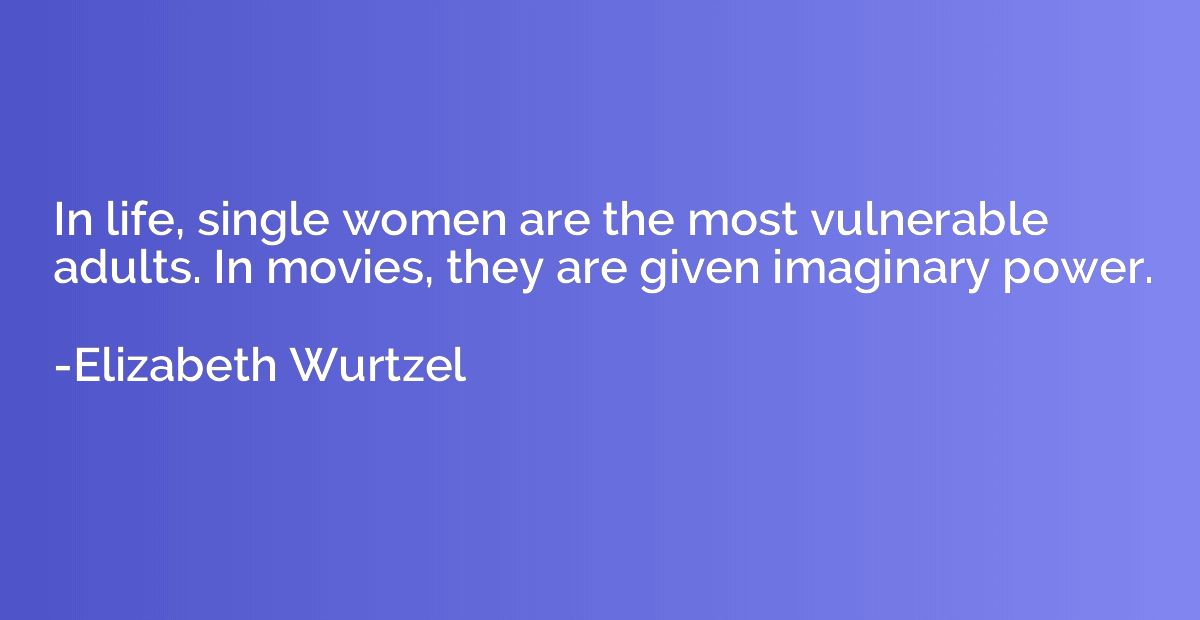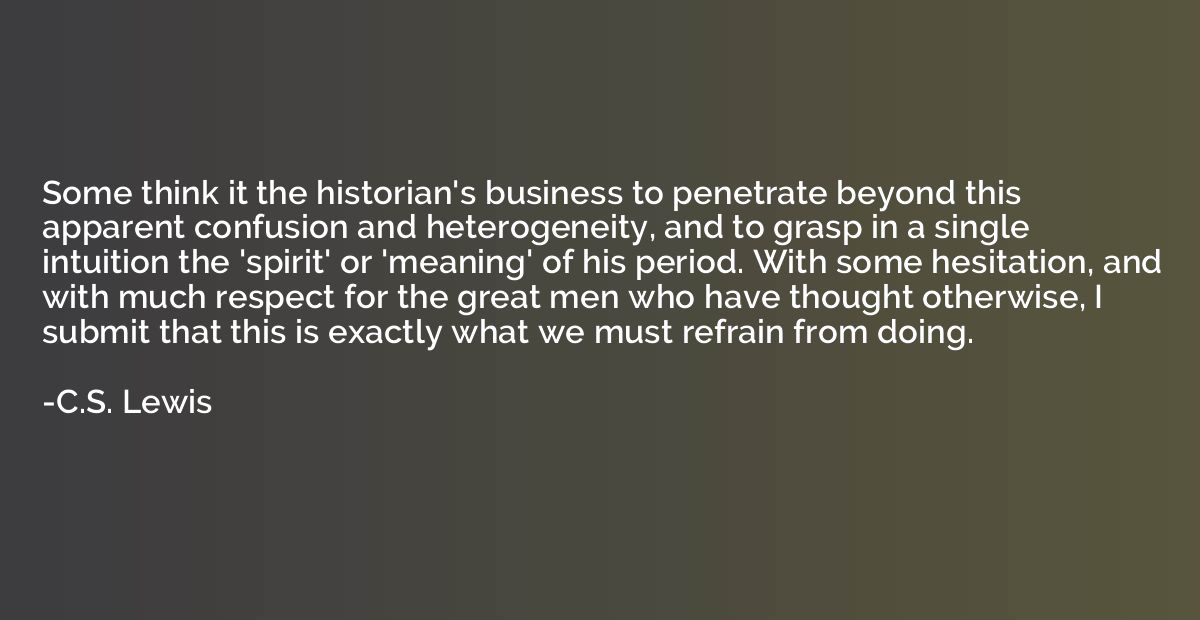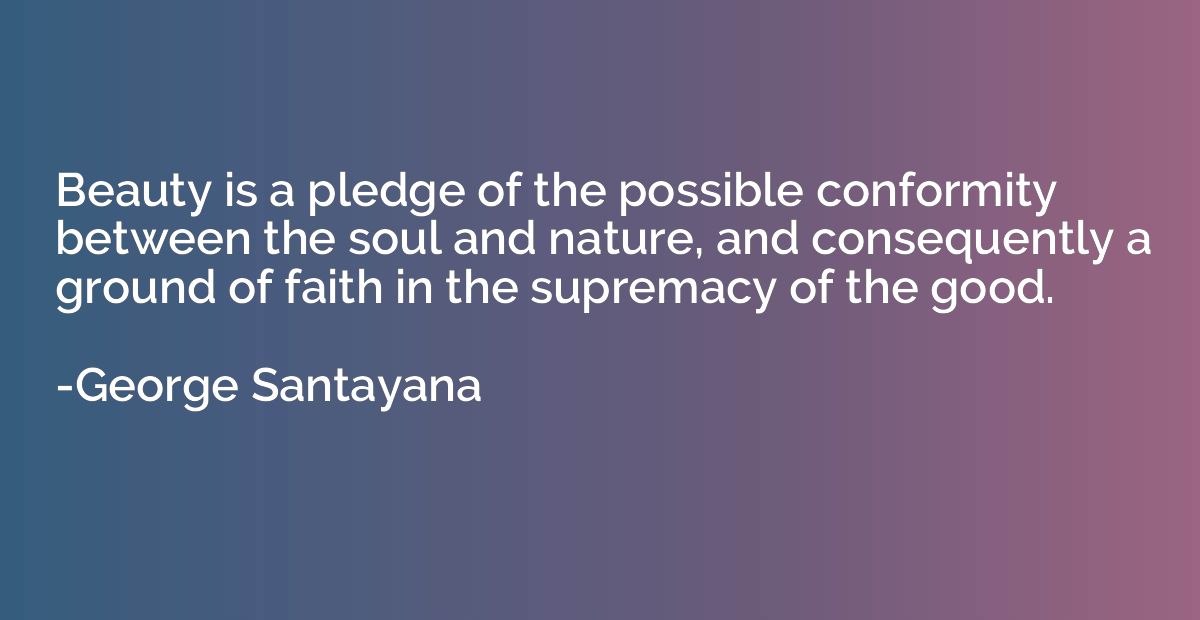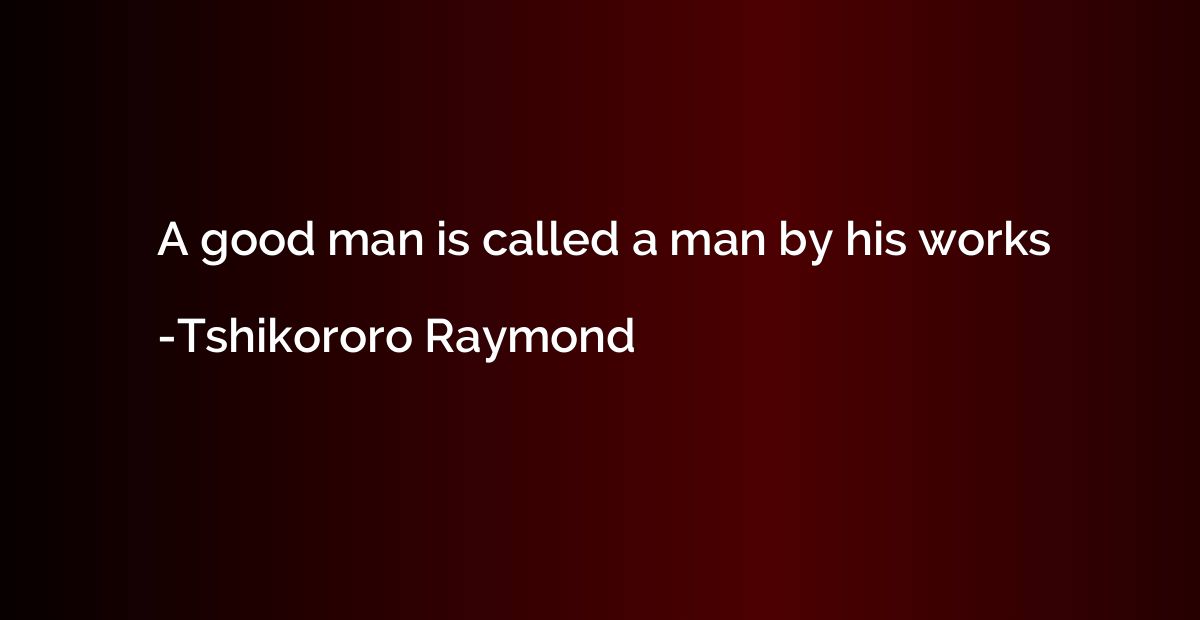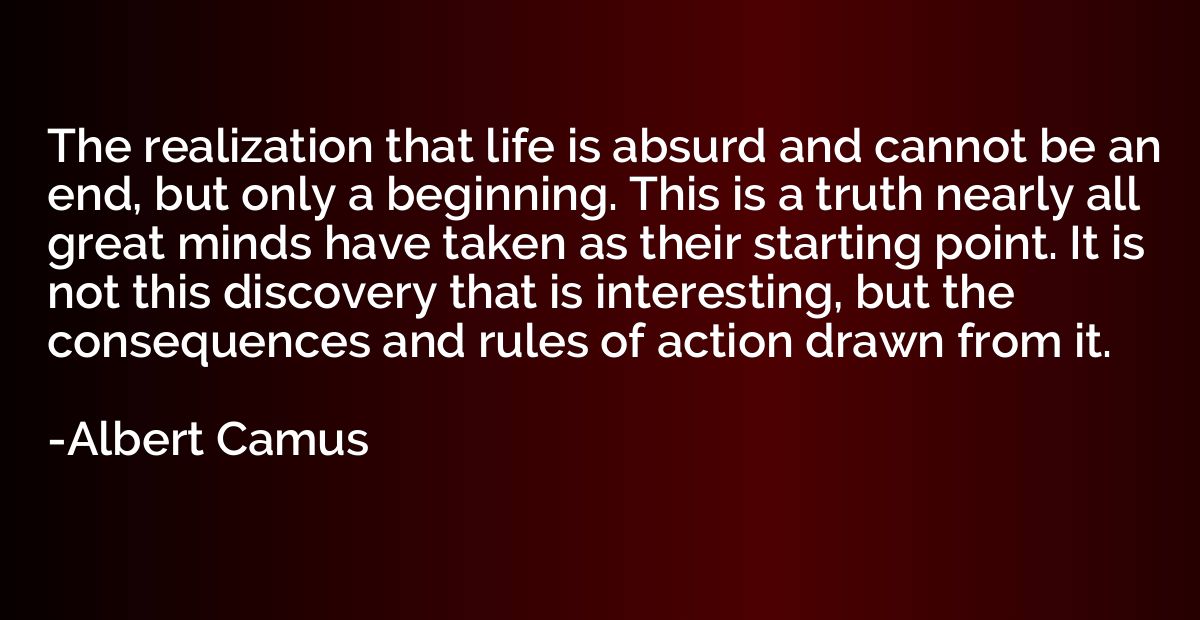Quote by Martin Luther King, Jr.
Violence as a way of achieving racial justice is both impractical and immoral. I am not unmindful of the fact that violence often brings about momentary results. Nations have frequently won their independence in battle. But in spite of temporary victories, violence never brings permanent peace.
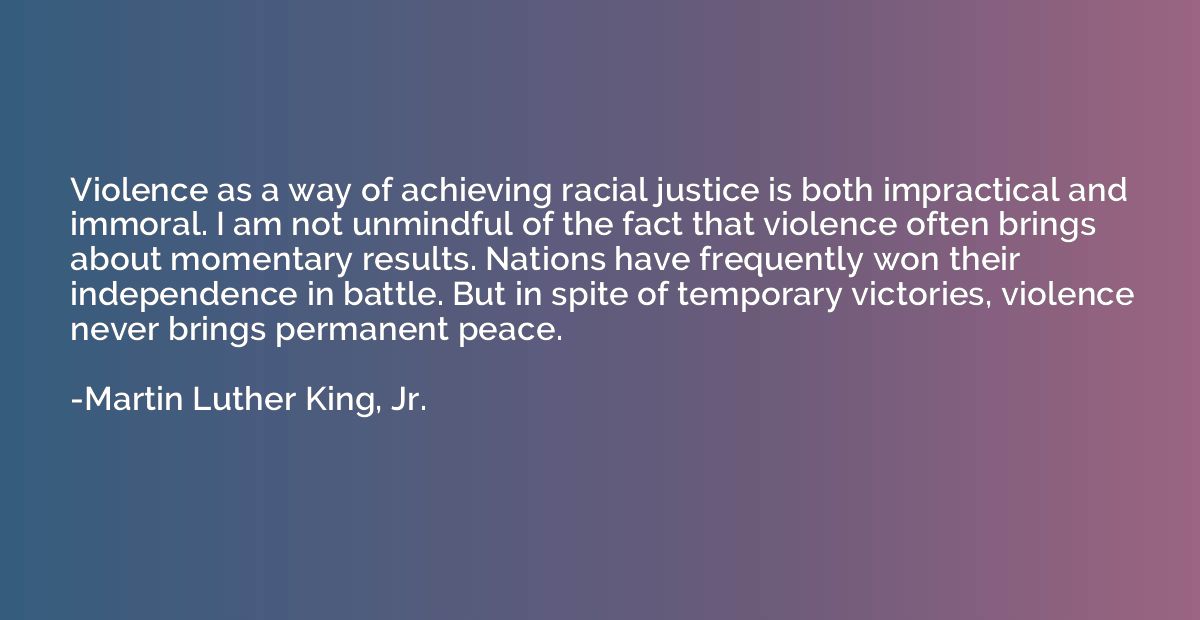
Summary
This quote highlights the impracticality and immorality of using violence to achieve racial justice. While violence may yield momentary results and independence for nations, it never leads to lasting peace. The speaker acknowledges the temporary successes gained through violent means but emphasizes the importance of seeking nonviolent paths to ensure lasting and sustainable change in the pursuit of racial justice.





